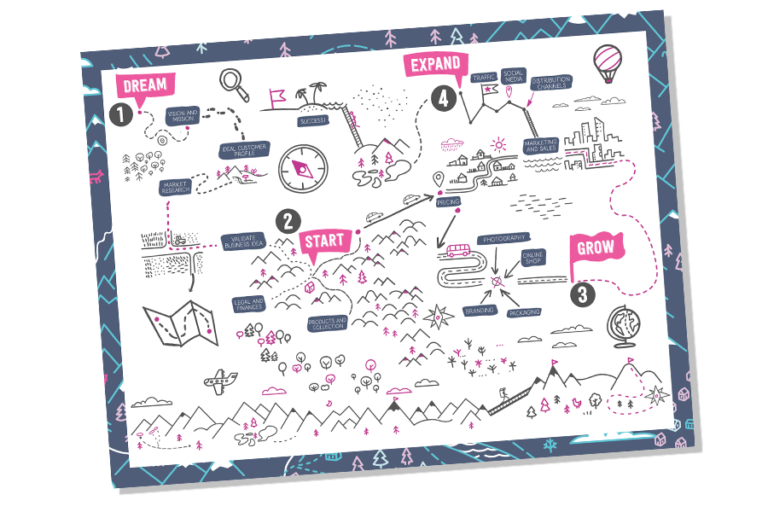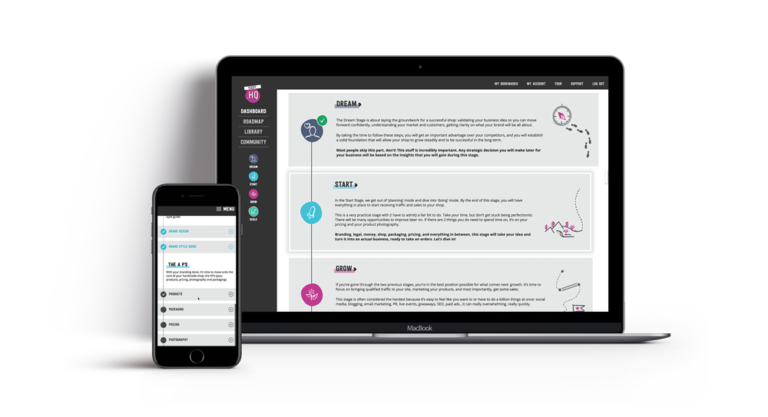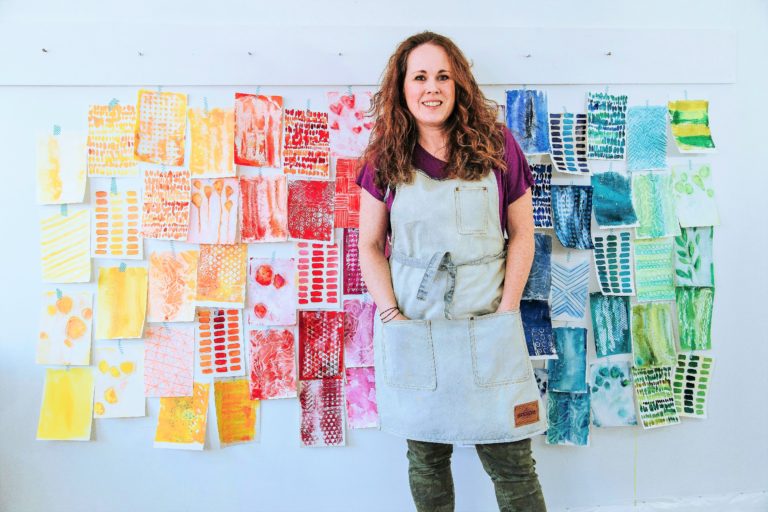I’m talking with Deborah Engelmajer from Australia. Deb has a vibrant online community called Tizzit where she helps creatives develop a successful handmade shop. Since we’ve all been staying closer to home, Deb has encouraged makers to keep marketing their handmade items, even if you have to pivot and offer different items or different versions. We still need beautiful things in our lives and people are wanting to buy from small businesses. Deb also offers lots of free resources on her blog and through her Youtube videos. You can also go to her website to get The Maker’s Roadmap, which she created to break down the steps needed to dream, start, grow, and scale your handmade business.
Listen here or use a podcast app, such as Apple Podcasts, Castbox, Spotify, or Stitcher.




Deborah Engelmajer’s business is called Tizzit and her website is tizzit.co.
Click here to go to the Tizzit HQ membership community.
To get your own copy of The Maker’s Roadmap, click here.
You can find her Youtube Channel here.
This is her Tizzit Facebook page and her Instagram.
Here are some great takeaways from our conversation:
- Deb said that one thing that has helped her get through this crazy time is that she helps other people, and that makes her feel good. Her clients are coming to her with their worries for their handmade shops and she’s able to help them. She has followed the attitude of when you feel helpless, then be helpful.
- Deb helps shop owners tackle their business tasks in the proper order. For example, you don’t want to get on Pinterest and start promoting your products before you’ve taken good photographs of your products.
- It’s a good idea to provide some videos and resources for free on your website so that people can try you out and get to know you before they decide to buy your service. That would apply if you are providing coaching services and also if you’re providing classes.
- Deb offers a membership with lots of content and monthly coaching calls. During the downturn of the economy, she has allowed her members to pause their membership for a month or two until they can afford to join again. That’s a great option if you’re able to offer that. Just make sure you have all your business policies clearly defined on your website or the material that you give your members or students.
- After the first month or so when Deb lost members, she found she then gained new members because people had more time on their hands to create handmade shops. Some may have lost other jobs and they wanted to supplement their income with a handmade shop. Realize that even in a slow economy, coaching services will still be in demand.
- Deb emphasized that even during this crisis, it’s OK to sell. You’ll probably adjust your marketing a little, but go ahead and keep selling. You’re not a bad person for being in business right now.
- Your marketing should include a story. For example, on Instagram, don’t just post a photo of a product and write a caption that says the product’s name and price. Write a story and tell people why they might want this product right now.
- You need to adjust your message to what people are living through right now. That includes your social media captions, your emails, and your product descriptions.
- In a struggling economy, you can pivot with your business. A little pivot, as Deb says, is when you offer different products or offer them in a different way. You’re looking at what you’re already offering, but can you offer it a little differently that will help your customer more in this time?
- You also may feel you need to do a big pivot. That may mean changing your shop, or going into another niche. After the economy recovers, you could return to your original business plan or you could stay with the new plan if that is working well for you.
- If business is really slow, you can use this time to work on your administrative tasks. You can catch up with your financial tasks, like your taxes, or you can update your product inventory, or you can learn new systems for recording your transactions or scheduling social media posts. These are just a few examples.
- If you’ve found you have extra time on your hands right now, you can also use the time to develop a new product or line, or anything else you’ve wanted to do but didn’t have the time for before.
- Even if your products are not selling right now, you still need to keep up with your social media and email list. You don’t want your customers to forget about you during this time. You can still share the behind the scenes of making your products, your works in progress, and give people valuable tips related to your product.
- The last thing Deb said is to find your tribe to support you through this time. It can be her membership group or a Facebook group or anything else. But talking with other makers will help you to stay positive so that you can get through this strange time with your business.




